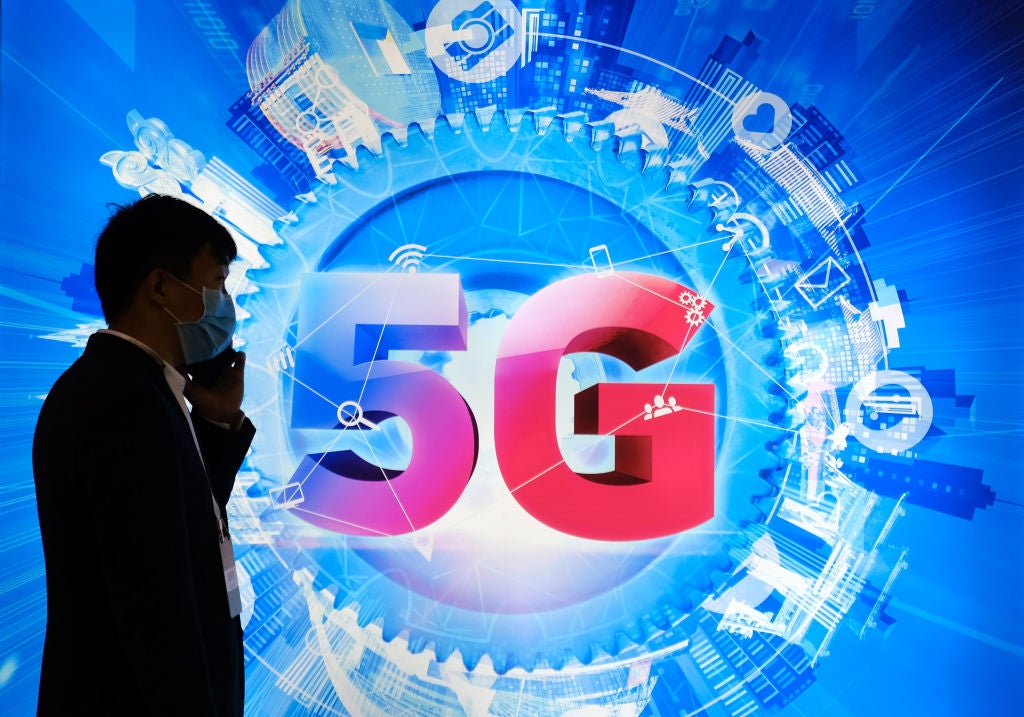
China’s three biggest mobile network operators, China Mobile, China Telecom and China Unicom, are expected to roll out a nationwide 5G messaging service by the end of October in a bid to challenge the so-called super app, WeChat. The new service will centre around video and audio messaging but will include electronic payments.
The news was announced by the China Securities Journal, a national financial newspaper published by the state-run media outlet, Xinhua News: in effect the plan was announced by the government.
The three Hong Kong-listed telecoms operators published a white paper in April last year when the idea was first introduced. At the time, they explained that the new China 5G service would allow users to send texts, photos, videos and audio content directly via the messaging function on their smartphones, without the need to download a separate app as with WeChat.
This trend is known as Rich Communication Services (RCS), a communication protocol between cell phone carriers and between phone and carrier, which aims to integrate features from, for instance, Facebook Messenger, iMessage and WhatsApp into one platform.
Why 5G, in particular, would be needed for this service is not immediately clear. RCS has been around for a while, explains GlobalData analyst and 5G specialist David George.
“Why that needs to be on 5G as such, I don’t know, other than as a commercial incentive to push 5G adoption further,” he added.
How well do you really know your competitors?
Access the most comprehensive Company Profiles on the market, powered by GlobalData. Save hours of research. Gain competitive edge.

Thank you!
Your download email will arrive shortly
Not ready to buy yet? Download a free sample
We are confident about the unique quality of our Company Profiles. However, we want you to make the most beneficial decision for your business, so we offer a free sample that you can download by submitting the below form
By GlobalDataAside from such incentives, the push for 5G is also central to the China Communist Party’s (CCP) tech agenda – on which WeChat is positioned near the top. Launching a new messaging service specifically powered by 5G would take advantage of and further cement the rapidly growing number of 5G mobile subscribers in the world’s biggest smartphone, internet, and 5G market. In December 2020, Beijing announced plans to build at least 600,000 more 5G base stations in 2021.
While 5G is largely described as the next revolution in cellular technology that will enable faster mobile data speeds, it is also crucial in China’s ongoing tech trade war with the US and US-aligned Western nations.
In January, the US prohibited citizens from purchasing any publicly traded securities or derivatives from China Mobile, China Telecom and China Unicom, citing national security concerns. Other companies that have been caught in the 5G crossfire between the US and China, notably Huawei, were also mentioned in the document. Huawei, one of the world’s major providers of mobile networking equipment, has been excluded from the rollout of 5G in various nations including the US, the UK and Australia.
China Securities Journal also reported that China Mobile and the Industrial and Commercial Bank of China (ICBC) have jointly developed a digital wallet powered by 5G to support China’s state-backed digital currency.
“It is laying a foundation for building a digital yuan ecosystem using the 5G network as a carrier,” the original report said.
Through the new service, users will be able to check their balances, statements and directly transfer money to their contacts, “eliminating the need for cumbersome steps such as searching for, downloading and installing apps on the app store,” the China Securities Journal report reported.
Notably, one of China’s most popular digital payment apps, WeChat Pay, is operated by Tencent through the WeChat app. WeChat is often known as a “super app” as it offers most services that users could require: messaging, banking and payments, shopping, delivery, gaming, ticketing and navigation. Once a user has WeChat, he or she may never download another app or use any service built into the handset other than its mobile data connection.
The partnership between China Mobile and ICBC is expected to continue. The report said the two would work with mobile terminal manufacturers and other partners in the industry chain to “accelerate the expansion and deepen the integration of the 5G messaging system and the digital yuan.”
The new service will also provide a platform for government agencies and companies to provide services and communicate directly with mobile subscribers via chatbots.
These announcements come at a time when the Chinese government is actively trying to rein in the power of its domestic Big Tech sector. Tencent, the company behind the super app WeChat, has long been one of the giants of the sector. With over 1.2 billion monthly active users, including great majority of the Chinese population, WeChat holds an impressive amount of personal data – a fact that the Chinese government is increasingly concerned about.
Working together with China’s three dominant telecommunication service providers, the government may in fact be the driving force trying to establish a state-backed alternative to China’s popular social media apps.
China Mobile is the world’s largest mobile operator by number of subscribers. According to GlobalData’s thematic analysis, the company had 1 billion subscribers at the end of 2020. China Unicom and China Telecom are also significant players in the global wireless network industry, with 358 million and 326 million subscribers by the end of 2020, respectively.
All three telecommunications companies are state-owned and act in step with Chinese government policy.







